book review
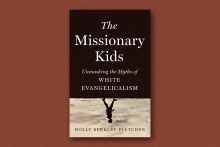
When Holly Berkley Fletcher was a child, she once heard her missionary parents “literally introduced as ‘Super Christians.’” In a white American evangelical culture that idolizes missionaries in this way, how do we speak honestly about the harm missions too often leave in their wake? In Fletcher’s new book The Missionary Kids: Unmasking the Myths of White Evangelicalism (Broadleaf Books), missionaries’ grown children offer a complex and fascinating perspective.
Fletcher—a historian, former CIA analyst, and missionary kid (MK) herself—draws on extensive research, her own experience as an MK, and surveys and interviews with fellow MKs to present a wide-ranging look at MKs’ experiences. Without losing sight of the noble intentions of most missionaries and the good work that many of them do, she pulls back the curtain on the perceived saintliness of missionaries, uncovering an alarming multitude of systemic harms. In doing so, she exposes key myths at the core of white American evangelicalism itself.
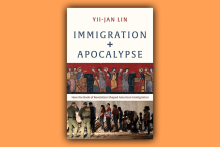
The U.S. has always considered itself as this New Jerusalem — a land specially blessed by God — but also one that is only available to those specially chosen. And from the establishment of the United States as a nation, as Lin discusses, this drive to only welcome certain individuals has been heavily focused on questions of race and national origin. The notion that the U.S. is a nation that welcomes immigrants is a myth that contradicts historical record. Instead, our “[i]mmigration and naturalization laws serve ultimately to create the ideal population as conceived by those who set policy and legislate,” Lin writes.

Tia Levings made a decision for herself and her children on October 28, 2007. With the help of a priest, she planned for an escape from her abusive husband. “I heard a voice say, ‘RUN,’” she writes in her memoir, A Well-Trained Wife: My Escape from Christian Patriarchy.
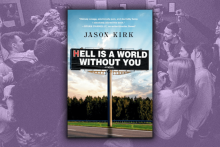
I don’t think I’ve ever read a book quite like Jason Kirk’s Hell Is a World Without You. This book, a bildungsroman about a teen’s evangelical house of cards and the mounting life experiences, new friends, and cold fingers of doubt that threaten to knock it over, is a call coming from firmly inside the house.
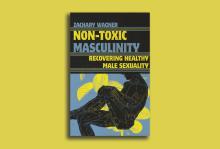
ENDORSEMENTS RARELY CATCH my eye, but some names that grace Zachary Wagner’s Non-Toxic Masculinity: Recovering Healthy Male Sexuality made my jaw drop. Amy Peeler and Kristin Kobes Du Mez — scholars renowned for tackling purity culture and male-centric theology — aren’t names you’d expect on a book like this. Most traditional Christian men’s thoughts on “biblical manhood” are not only flimsily dressed in culturally secular activities like playin’ sports and shootin’ guns, but also fatally based in unbiblical standards of hypersexual and violent behavior. Thankfully, Wagner swings over such pitfalls, laying out an expansive vision of masculinity rooted in the Jesus ideal: love for God and neighbor.
Wagner articulates how purity culture failed both women and men. “Many of the theological and cultural foundations of the movement were sub-Christian, even worldly,” he writes. “Dehumanizing theology leads to dehumanizing behavior” — behavior that includes fetishized virginity, body hatred, tolerated abuse, and sexual segregation. Purity culture, Wagner explains, calls men “animals” and “perverts,” confounding rhetoric I heard growing up in the church. This type of gendered, sexual denigration — especially when attributed, in part, to God’s design — only serves to further dishonor the imago dei of men and excuse sexual sin.
There’s a “pathetically low and impossibly high bar for masculine sexuality [that] trains men to resist, flee, and medicate (through marital sex) their untamable boyish immaturity rather than grow beyond it,” Wagner writes. The divinization of high libidos and heterosexual marriage can be doubly damaging for queer Christian men, who face additional stigmatization and erasure in the church.
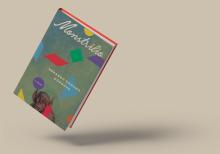
ON A BRIGHTLY lit stage in Berlin, a performing artist drapes her dead son’s pajamas over her lap and begins to cry. She cries “loud and unabashed” until her ponytail starts to unravel, and her face becomes swollen and red. Soon, the audience begins to cry too.
The artist is Magos, mother to Santiago, the boy who dies in the opening pages of Gerardo Sámano Córdova’s novel Monstrilio. When Santiago dies, his parents — Magos and Joseph — begin to drown in their grief. But where Joseph isolates himself, weeping endlessly, Magos does something strange. She cuts out a piece of her dead son’s lung, leaves Joseph, and retreats to her mother’s house in Mexico City.
Part family drama, part queer coming-of-age story, Sámano Córdova’s debut gracefully wields its horror elements while navigating the complexities of grief. Structurally, the novel unfolds in four unique perspectives: Magos, Lena, Joseph, and M. After Magos learns about a folktale in which a dead girl’s heart grows into a young man, she sequesters herself in her mother’s house and feeds the lung pork and beef. She doesn’t clean or air out the room. Instead, she uses her odor as a shield, to keep her loved ones away from the lung, to protect its growth. This moment captures the overwhelming nature of Magos’ grief, but it also foreshadows the extent to which she will go to protect what she has left of Santiago.

Elizabeth Weinberg draws connections between things many of us haven’t thought to link together. In her 2022 book, Unsettling: Surviving Extinction Together, a whale’s excrement is not just feces but the nourishment that fuels whole ecosystems.
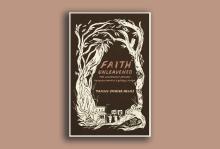
Tamice Spencer-Helms shows how colonialism and white supremacy are embodied in a Jesus made in Christian Europe's image.

SOBER SPIRITUALITY by Erin Jean Warde is ultimately an invitation for readers to ask themselves, “How do I want to be in a relationship with alcohol?” Warde, an ordained Episcopal priest, spiritual director, and sobriety coach, asked this question of herself years ago. She ultimately chose sobriety but realizes that won’t be where everyone lands. And Warde also wants the whole church, not just individuals, to engage this question.
Because, according to Warde, the church’s current relationship with alcohol is pretty toxic — especially in progressive churches. Progressive denominations often work to distinguish themselves from fundamentalism and much of white evangelicalism, communicating, “Yes, we’re Christian, but not that type of Christian” — not the type that is hostile to immigrants and bars women and LGBTQ people from the pulpit.
But one of the ways progressive churches have signaled this distinction, Warde argues, is harmful: “by illustrating how much they drink or that they drink at church.” Events like “Beer & Hymns” or “Theology on Tap” come to mind. This type of laid-back programming quickly communicates to newcomers that the host church isn’t dogmatic or old-fashioned. But it sends a different message to people who are sober or sober curious. “The common refrain of ‘all are welcome’ must ring true when a person changes their relationship with alcohol,” Warde writes.
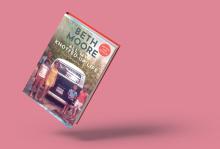
“GRIEF TAKES SO much energy. I can feel it even in my fingers.”
These are the words that drew me to Christian author and speaker Beth Moore’s memoir, All My Knotted-Up Life. She posted the sentences as two separate tweets in the wake of her brother’s unexpected death, less than three weeks before her memoir’s release.
Through her Living Proof Ministries, Moore is one of the most prominent white evangelical women in the U.S. I braced myself as I entered the book, but she delivers stories of resilience with all the charm, sweetness, and humor one would expect from a memoirist with roots in Arkadelphia, Arkansas.
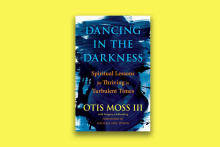
In Dancing in the Darkness, Moss urges readers to move through the sorrow of the blues to what he calls “jazz politics” — one of collaboration, community participation, and dialogue: “If we had a jazz version of democracy in our politics, where each of us could play all our notes, even the blue notes, and contribute them to the music of the whole, then dialogue and honest debate would be the norm rather than demonization and incivility.”

WHEN I FINISHED reading Kendall Vanderslice’s By Bread Alone, I went into my kitchen and measured out flour, water, yeast, and salt. I kneaded the dough, let it rise and fall then rise again. Soon, three golden loaves were ready for me to bring to my pastor and his family. Bread connects us to each other and to Jesus. As Vanderslice details in her book, bread is central to the Christian story.
Vanderslice, who holds a master’s in gastronomy from Boston University and a master’s in theological studies from Duke Divinity School, is a professional baker and practical theologian. She seeks to create an eternal communion, much like the “taste of bread lingering on our tongues.”

NEARLY ALL OF us have encountered a person on the street who is unhoused and asking for help. Perhaps we have felt conflicted about how to respond: Should we give them cash? Should we offer to pay for a meal instead? Will the cash we give cause further harm through the purchase of alcohol or drugs? It can be difficult to know how to engage responsibly at the personal or the policy level with the growing problem of homelessness in the U.S.
Enter Kevin Nye’s illuminating book, Grace Can Lead Us Home: A Christian Call to End Homelessness. Nye offers a new lens through which to view homelessness and, more importantly, our neighbors experiencing homelessness. For him, this is not just another justice issue, but rather his calling: He has devoted much of his adult life to working with unhoused people in Los Angeles.
Grace Can Lead Us Home explains the macro-level causes of homelessness and contributing factors. And it reveals micro-level approaches to engaging with our unhoused neighbors in a way that centers our mutual need for connection and belonging. He discusses the lack of affordable housing that drives this crisis; the inadequate mental health support available to unhoused people; and the surprising truth about substance abuse and addiction affecting homeless populations.
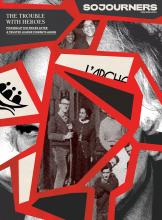
Charismatic leaders such as Jean Vanier can inspire and transform us. But when these leaders commit abuse, how do the movements they ignite pick up the pieces?

Black Dignity is a must-read for anyone struggling against domination in a world constituted by anti-Blackness. For Lloyd, domination is the arbitrary exertion of one’s will over another, and its “primal scene” is the master/slave relation. For Lloyd, his use of the language of “domination” points toward a specific kind of relation that permeates the world: anti-Black violence. Lloyd specifically says the purpose of the book is “to get a sense of this new language of Black dignity, to explore how the hashtags could be filled out, linked together, and oriented toward the struggle against domination in general and anti-Blackness in particular.” Morally stimulating, energizing, probing, and clear, Black Dignity demonstrates Lloyd’s ability to weave together and synthesize Black political and religious thought.
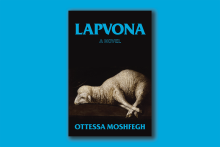
WHAT IS A devout village to believe in during a time of famine and plague? Ottessa Moshfegh presents a story devoid of hope and redemption in her latest novel Lapvona, proving that in dire times, believing is not a want but a need.
Moshfegh has a flare for brutality (Eileen and Death in Her Hands). With Lapvona, Moshfegh has crafted a medieval fantasy in the vein of Game of Thrones. It reads like a fairy-tale epic for adults, with its cast of fringe characters and fable-esque sequence of events. But this fantasy is far more depraved: As religious as the villagers are, there is no redemption to be found in this village.

There’s a kind of willful ignorance horror-averse Christians demand, because the truth is we don’t want to sit with the shadows or go down into the basement. We want to sweep all the ugly parts of life back under the bed where they might go bump in the night but won't trouble us in the light of day.

In current times, the idea of the heathen underpins “a White American Christian superiority complex.” Lum explores this through the white savior trope, pointing to the historical example of how many white Americans positioned themselves “in opposition to the heathen world… [in order] to give themselves a venue for the evangelizing work that marked them as the givers [rather] than recipients of aid.” Within the context of the United States, “heathen” has become a racial and classist designation meant to distinguish between the so-called “first world” and the “third world.”
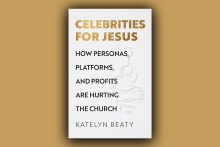
The outrages of celebrity culture have a material basis, with flashy sneakers and luxurious living, but Beaty’s analysis expands to include a deeper psychological and spiritual perspective on the problem.
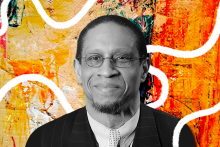
With scholarly precision and an ability to engage beyond the tired critiques of right-wing Christianity, Hendricks imagines a version of Christianity that is politically committed to social justice. Whether it is through his experience growing up in the Black church, his commitment to the revolutionary nature of Jesus’ teachings, or his insistence that leftist politics and Christianity can inform one another, Hendricks demonstrates the beauty of the Christian faith.